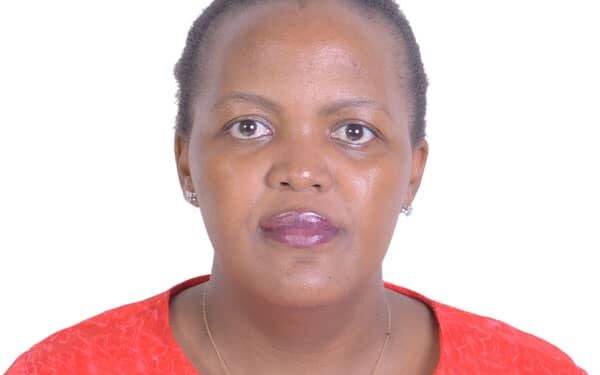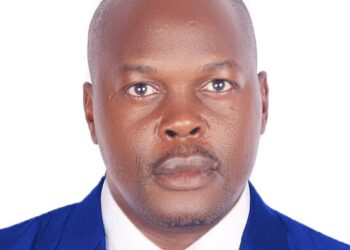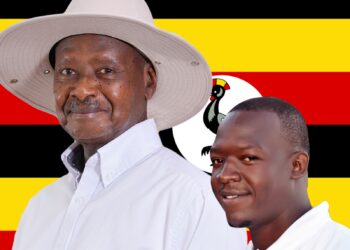Bernadette Mutuzo,
Communications Specialist/Lawyer.
“Every hour a child spends in the classroom is precious, an opportunity to expand their horizons and maximise their potential. And with each passing moment, countless amounts of opportunity are lost,” Ms. Henrietta H. Fore, UNICEF Executive Director has been quoted as saying. Such losses of opportunity have defined the lives of Ugandan children for the last 78 weeks. Schools have remained closed due to the COVID19 pandemic, beating the world record of countries that continue to keep schools closed. This glaring statistic is not only disheartening but absurd because all stakeholders, like government, parents, political leaders, cultural and religious leaders, the media fraternity and school proprietors, know that the prolonged closure of schools has devastating effects on children and we are all responsible for its adverse effects in our society.
Quality Education, world over is cited as a force for sustainable development, nation building and peace. This process is not limited to facilitating learning or acquisition of knowledge and skills but it is also a way of inculcating values, morals, beliefs and habits for personal development of an individual. The 17 Sustainable Development Goals (SDGs) or global goals set up in 2015 by the United Nations General Assembly to be achieved by the year 2030 categorically present quality education (SDG 4) as a key aspect of this development with the major aim of providing an inclusive and high quality education which will improve the learner’s standards of living and the community’s future. In this regard, the government of Uganda through the Ministry of Education and Sports has a constitutional obligation to provide quality education for Uganda’s children.
At the onset of the COVID19 pandemic, Uganda provided free education for all although this was not without challenges. There were gaps in digitalization of the education system, teachers were disgruntled with low pay and, student teacher ratios were too high. In the same breath, child marriages affected retention of students to higher levels of education, the quality of learners was at the bare minimum with the literacy and numeracy levels of the students too low, without mentioning the inequality gap in the provision of quality education to the learners.
The Covid19 pandemic did not find Uganda in a good place therefore, what was bad then is now worse; the inequality Gap in provision of quality education has been widened further, there is a large turnover of education proprietors and teachers alike having found alternative means of survival, school dropouts are on the rise, degradation of morals, spiritual values and the quality of learners has been adversely affected.
Government in an attempt to contain the situation has encouraged other means of providing education services through virtual learning, provision and distribution of study materials to learners in supposedly poor communities, and encouragement of learning on radio and television. These efforts defeat logic and practicality in our Ugandan setting. Government reports according to the Ugandan Bureau of Statistics say that close to 92% of schools in Uganda have no access to the Internet. How then do we expect these learners to have access to the Internet in their homes because, in the Ugandan setting formal education has been in a school setting. Secondly, the self-study materials offered to learners by the government were for a few and able learners. Those with disabilities were not catered for. As an example, Braille materials were not provided for the blind.
The use of radio and television as a medium of Education also defeats logic. The Uganda National Household Survey 2019/20 shows that access to radio sets in Uganda reduced from 45.2% to 31.7% among households. On the other hand, the recommendation to use these mediums for study assumes that every household has its own a radio set, yet according to statistics, not even 50% of the population have these radio sets.
The aspect of ownership and functionality of studying via internet, radios and TVs also ought to be looked into. This is because caregivers are focusing their income towards feeding their dependents in the economic crisis caused by the pandemic. People are not willing to sacrifice a day’s meal on a pair of dry cells because children have to study. More so, there was disparity in the distribution of the self-study materials to the poor-both rural and urban. Most of these lost their sources of income therefore asking them to purchase power units or dry cells or data for a learner to continue learning on television and radio respectively is hypothetical.
Notwithstanding, some Ugandans are in position to homeschool their children, some high-end schools are able to provide zoom classes for their learners, and others are well able to educate their children in other countries that have decided to keep their schools open. However, these kinds of Ugandans are very few compared to the 6 million children who are largely concentrated in universal education settings without the required resources to access education.
Quality education is one based on a set of values and beliefs which explains why institutions of learning which are founded by religious institutions which explains why it is rare that children from these schools will deviate from what they were taught, in adulthood. Continued closure of schools and places of worship defeats logic in terms of shaping a responsible citizenry. It is of no use to employ a person without character or value system whose judgment cannot be trusted in the face of compromising work situations. Continued silence on the issue of school closures and passivity have condoned this injustice to the young generation. How do we dispel the raging storm or at least mitigate the adverse effects of this anticipated socio-economic catastrophe?
Every Ugandan at an individual basis owes a duty of care to the young generation to defend their right to a quality education because this in the end determines the value system of the futre generation.
Do you have a story in your community or an opinion to share with us: Email us at editorial@watchdoguganda.com













